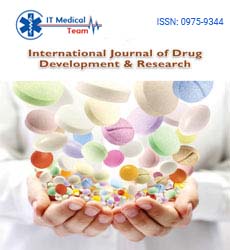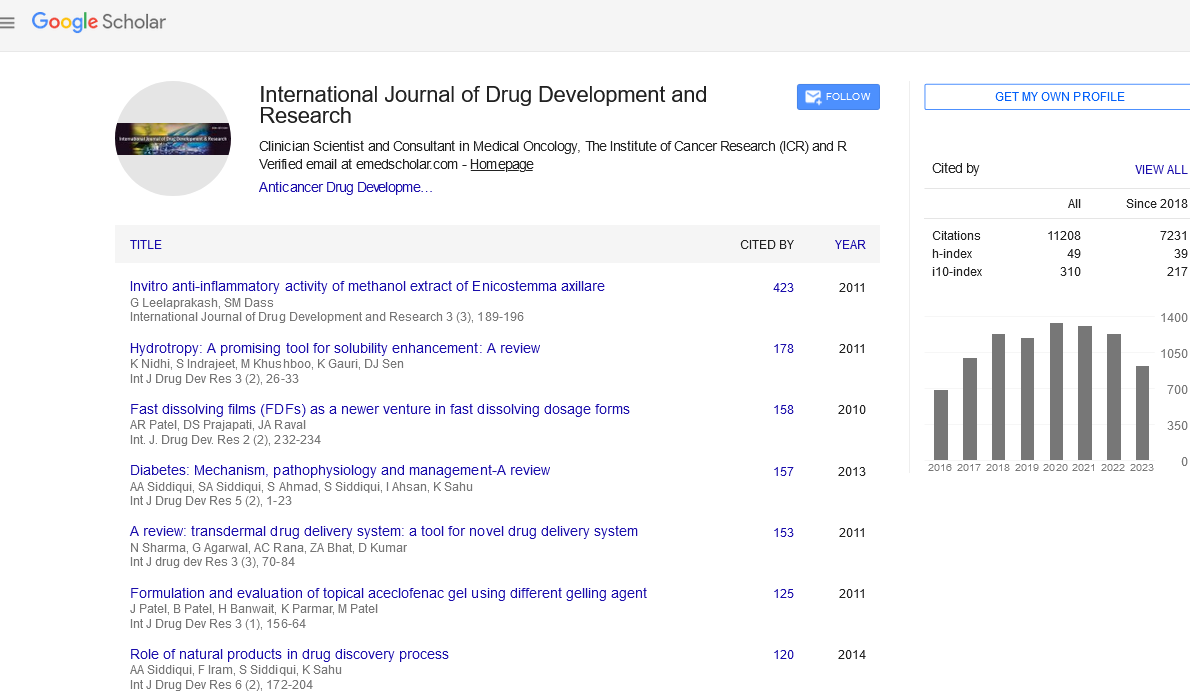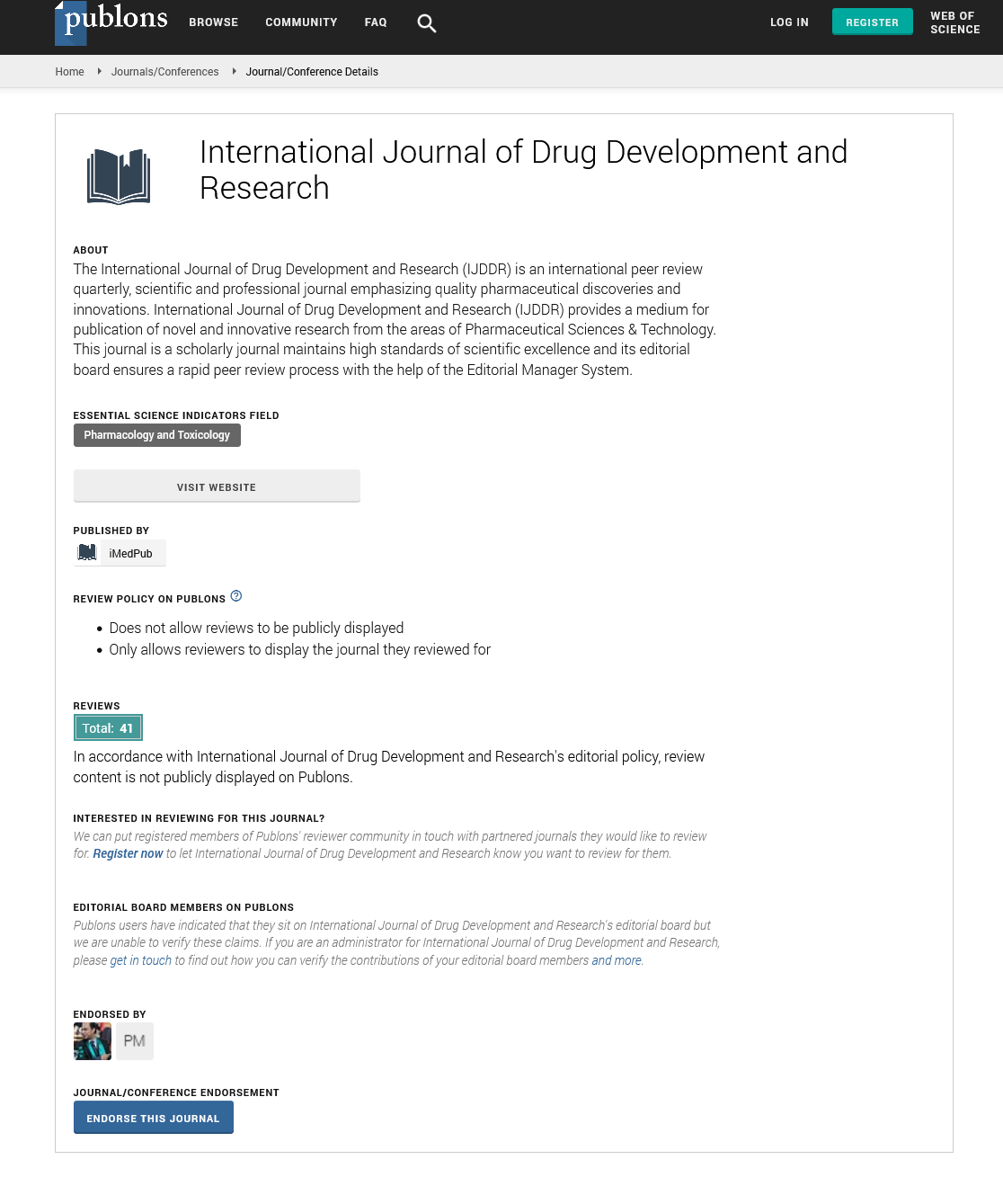Keywords
Medicinal herbs, Eucalyptus oil, Safety, Anti microbial.
Introduction
Herbal medicine is the study deals with use of medicinal properties of plants. Plants have the ability to synthesize a wide variety of chemical compounds that are used to perform important biological functions. Many herbal remedies have been used for oral health for hundred of years. Eucalyptus oil is made by extracting the oil from the leaves of the tree. Eucalyptus trees, which are otherwise known as “gum trees” are members of the Myrtaceae family. Eucalyptus oils are grouped into three categories: medicinal, perfumery and industrial. Eucalyptus oil has antibacterial and anti-inflammatory properties. It has a long history of use against the effects of colds, influenza, other respiratory infections, rhinitis and sinusitis.[2]
Research suggest that forty-seven compounds were identified in the essential oilsvand the main constituents of the essential oils were 1, 8- eucalyptol (72.71 %), --pinene (9.22 %), -- vterpineol (2.54 %), (-)-globulol (2.77 %),--terpineol acetate (3.11 %), and alloaromadendrene (2.47 %).[3]
Uses of Eucalyptus oil[4,5]
Medicinal use of Eucalyptus oil are extensively used as a raw material and as an active ingredient in many pharmacological aids. The following are the uses:
• Asthma
• Reducing inflammation
• wound healing
• Burns
• Ulcers
• Acne
• Diabetes
• Fever
• Liver and gallbladder problems
• Loss of appetite
• Arthritis pain
• Chronic obstructive pulmonary disease Tuberculosis
Side Effects
The side effects associated with the use of Eucalyptus oil are: [6]
• Allergic skin reactions
• Rashes and burning sensation of the skin
• Prolong use can cause drowsiness, difficulty in breathing.
• Worsening of Asthma
• Rhino conjunctivitis
• Cardiovascular collapse and multi-organ failure due to massive ingestion of mouthwash containing eucalyptus oil.
Dental Use of Eucalyptus Oil[7]
For treatment of gum diseases as anti plaque agent for bleeding gums for halitosis Stomatitis.
Anti Bacterial Activity[8]
Savarimuthu Ignacimuthu conducted a study on the invitro antibacterial activity of some 21 plant essential oils against (Escherichia coli, Klebsiella pneumoniae, Pseudomonas aeruginosa, Proteus vulgaris) and two grampositive bacteria Bacillus subtilis and Staphylococcus aureus at four different concentrations (1:1, 1:5,1:10 and 1:20) using disc diffusion method. The findings indicates that Eucalyptus oil showed significant antibacterial activity against the tested strains.
Anti Cariogenic Activity[9]
Jalal Poorolajal performed a study on Antibacterial effect of eucalyptus (globulus Labill) and garlic (Allium sativum) extracts on oral Cariogenic bacteria Streptococcus mutans and Lactobacillus acidophilus. The study proved that garlic extract showed significant anti caries activity and Eucalyptus oil had not shown any activity.
Anti Plaque Activity[8]
The study was conducted by AL-Bayaty et al to evaluate and to compare the antibacterial effects of Gengigel, Oradex and Salviathymol N on certain dental plaque bacteria, on pooled samples of dental plaque (supragingival and subgingival plaque) and to compare some dental plaque bacterial morphology before and after treatment with Gengigel, Oradex and Salviathymol N mouthwash, respectively, by examination under Scanning Electron Microscope.
Essential oils based mouthwash (Salviathymol N) has proved its value over years for the treatment of inflammatory conditions affecting the oral cavity and pharynx. This mouthwash mainly contains sage oil (Oleum salviae), eucalyptus oil (Oleum eucalypti), cinnamon oil (Oleum cinnamoni), fennel oil (Oleum foeniculi), aniseed oil (Oleum anisi), peppermint oil (menthol) and chlorophyllin. Recently, bacteriological investigation by Graf et al has been done to determine the spectrum of antibacterial activity of Salviathymol N against bacteria found in the oral cavity.
The findings reveals that Salviathymol N which contains essential oils showed moderate anti bacterial activity against oral plaque forming micro organisms.
Irrational Use Of Eucalyptus Oil[11]
Chemical injuries of the oral soft tissues may readily due to the large number of chemical substances such as drugs and various agents, which come in contact with the oral cavity. In oral cavity it may cause diffuse erosive lesions, which depends upon the concentration, type and quantity of the substance. A rare case secondary to topical application of eucalyptus oil has been reported.
The case report as follows: (published in Bangladesh journal of medical science)
A forty two-year old female patient reported to the dept of oral medicine with the complaint of pain and decayed tooth in the right back region of the upper jaw since two weeks. The patient has applied eucalyptus oil over the gums associated with the decayed tooth following application of eucalyptus oil patient complained of severe burning sensation and ulcerations in the same area. Long exposure or higher concentration of solution can cause epithelial necrosis and shedding. The contact of the chemical with oral cavity shows inflammation and ulcerations. The patient was prescribed a topical application of herbal gel acacia catechu 134mg and acacia farnesiana 134mg thrice daily and tablet diclofenac sodium twice daily for three days. Acacia catechu, has anti-inflammatory, antibacterial, analgesic used for swollen gums and stomatitis. Acacia farnesiana, used for treating bleeding gums, stomatitis and dental caries. The case report presented that the irrational use of eucalyptus oil can cause caustic damage to the oral mucosa.
Conclusion
Eucalyptus oil should be administered after dilution. The diluted oil is utilized for pain and inflammation of respiratory tract mucous membranes, coughs, bronchitis, sinus pain , asthma, chronic obstructive pulmonary disease (COPD), and respiratory infections. It is also used as an expectorant to loosen coughs, antiseptic, fever reducer, and in vaporizer fluids and for treatment of wounds, burns, ulcers, and cancer.it is also used as a insect repellent . In dentistry, eucalyptus oil is included in products used as sealers and solvents for root canal fillings.
Dried eucalyptus leaf is used as a flavoring agent. It is also used as a mouthwash, antiseptic, liniment and ointment, and in toothpaste, cough drops, and lozenges. Eucalyptol is used as an ingredient in some mouthwash and dental preparations, as an endodontic solvent, and may possess antimicrobial properties. Listerine® mouthrinse is a combination of essential oils (eucalyptol, menthol, thymol, methyl salicylate) that has been shown to be efficacious for the reduction of dental and gingivitis.
5744
References
- Peter S. Abbott. History of Eucalyptus oil. FGB natural products available at https://www.fgb.com.au/history5/history-of- eucalyptus-oil
- Hardel Dadenra kumar et al Review on Phytochemical and pharmacological of Eucalyptus Globulus-A multipurpose tree .IJRAP.2011;2(5)1527-1530.
- Aihua Song, Ying Wang, Yanmei Liu, Study on the chemical constituents of the essential oil of the leaves of Eucalyptus globulus Labill. Asian Journal of Traditional Medicines 2009 4 (4):134- 140.
- Medicinal uses of eucalyptus oil available at- www.webmd.com/vitamins-supplements.
- Angela E. Sadlon, ND and Davis W, Lamson, MS, MD. Immune-modifying and antimicrobial effects of eucalyptus oil and simple inhalation devices. Altern Med Rev 2010;15(1);33-4
- Side effects of eucalyptus oil available at- www.intelihealth.com/IH/inhtlH/WSIHw008.
- Bachir Raho Ghalem and Benali Mohamed. Antibacterial activity of leaf essential oils of Eucalyptus globules and Eucalyptus camaldulensis. African jornal of pharmacy and pharmacology .2008; 2(10).pp.211-215.
- Seenivasan Prabuseenivasan, Manickkam Jayakumar, Savarimuthu Ignacimuthu. In vitro antibacterial activity of some plant essential oils. BMC Complementary and Alternative Medicine 2006, 6:39;1-8.
- Jalal Poorolajal et al Antibacterial effect of eucalyptus (globulus Labill) and garlic (Allium sativum) extracts on oral Cariogenic bacteria. Journal of Microbiology Research and Reviews. 2013; 1(2); pp. 12-17.
- F. H. AL-Bayaty Antibacterial effects of Oradex, Gengigel and Salviathymol-n mouthwash on dental biofilm bacteria. African Journal of Microbiology Research.2011; 5(6) pp. 636-642.
- RS Shishir, C Renita, AR Kumuda, BG Subhas. Irrational use of Eucalyptus oil in dentistry: a case report. Bangladesh Journal of Medical Science. 2011; 10 (2) pp.121-124.






